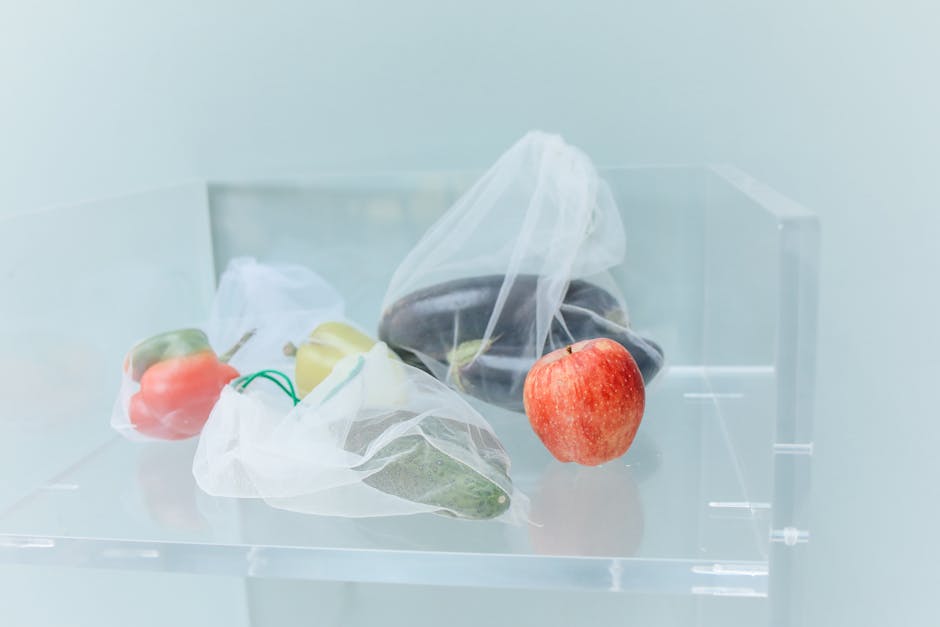Ethical Consumption Practices: Navigating the Path to a Sustainable Future
As we stand on the brink of a critical juncture in human history, grappling with the repercussions of our unsustainable consumption patterns, the concept of ethical consumption practices has emerged as a beacon of hope. In a world plagued by environmental degradation, social injustices, and economic disparities, individuals are increasingly recognizing the power they hold as consumers to drive positive change. But what exactly does ethical consumption entail? How can we navigate the complex web of choices before us to make truly impactful decisions? Join us on a deep dive into the realm of ethical consumption practices, exploring its nuances, challenges, and potential for transforming our world.
The Origins of Ethical Consumption

Ethical consumption practices have a rich history intertwined with the rise of social movements, environmental awareness, and corporate responsibility. From the early days of fair trade initiatives to the modern-day push for sustainable sourcing, the roots of ethical consumption run deep. By delving into the historical context of ethical consumption, we can better understand the evolution of consumer behavior and its implications for the present and future.
The Principles of Ethical Consumption

At the core of ethical consumption practices lie a set of guiding principles aimed at promoting sustainability, social equity, and ethical treatment of workers. Whether it’s opting for products with eco-friendly certifications, supporting local artisans, or boycotting companies with questionable labor practices, consumers have a myriad of ways to align their purchases with their values. By exploring these principles in depth, we can uncover the motivations driving ethical consumption and the impact it has on various stakeholders.
The Rise of Conscious Consumerism

In an age where information is readily accessible and social media platforms amplify the voices of consumers, the rise of conscious consumerism has reshaped the landscape of the marketplace. People are no longer passive participants in the economy but active agents demanding transparency, accountability, and sustainability from the brands they support. Through case studies and real-life examples, we can witness the power of conscious consumerism in driving positive change and holding companies accountable for their actions.
The Challenges and Controversies of Ethical Consumption

While the concept of ethical consumption holds great promise, it is not without its challenges and controversies. From greenwashing and ethical labeling confusion to the affordability of ethically sourced products, consumers often face a myriad of obstacles on their journey to making ethical choices. By examining these challenges through a critical lens, we can better navigate the complexities of ethical consumption and work towards solutions that promote genuine sustainability and social responsibility.
The Role of Technology in Ethical Consumption
As technology continues to revolutionize the way we interact with the world around us, it also plays a crucial role in shaping ethical consumption practices. From blockchain technology ensuring transparency in supply chains to mobile apps that help consumers make informed choices, technology has the potential to empower individuals to make ethical decisions effortlessly. By exploring the intersection of technology and ethical consumption, we can uncover innovative solutions that pave the way for a more sustainable future.
Building a Framework for Ethical Consumption
As we navigate the complex terrain of ethical consumption, it becomes essential to build a framework that guides our decision-making process. By incorporating elements of mindfulness, research, and community engagement, individuals can cultivate a holistic approach to ethical consumption that goes beyond mere transactions. Through practical tips and strategies, we can empower consumers to make meaningful choices that resonate with their values and contribute to a more ethical and sustainable world.
Embracing Ethical Consumption for a Better Tomorrow
As we reflect on the intricacies of ethical consumption practices, it becomes clear that the choices we make as consumers have far-reaching implications for the planet and its inhabitants. By embracing ethical consumption as a way of life, we can become catalysts for positive change, driving a collective shift towards a more sustainable and equitable future. Together, let’s embark on this journey towards ethical consumption, armed with knowledge, compassion, and a shared commitment to creating a better tomorrow for all.
Common Misconceptions
One common misconception about ethical consumption practices is that they are only accessible to a privileged few who can afford to pay premium prices for ethically sourced products. While it’s true that some ethical products may come at a higher cost, there are also affordable options available for consumers on a budget. By seeking out local, seasonal, and second-hand products, individuals can make ethical choices without breaking the bank.
Comparative Analysis
When comparing traditional consumption practices with ethical consumption practices, the differences are stark. While traditional consumption focuses primarily on price, convenience, and brand recognition, ethical consumption prioritizes factors such as environmental impact, social responsibility, and ethical sourcing. By conducting a comparative analysis of these two paradigms, we can better understand the implications of our consumption choices and make informed decisions that align with our values.
Conclusion
To wrap things up, ethical consumption practices offer a powerful framework for individuals to make conscious choices that align with their values and promote sustainability. By delving into the origins, principles, challenges, and opportunities of ethical consumption, we can equip ourselves with the knowledge and tools needed to drive positive change in the world. As we embrace ethical consumption as a way of life, let’s remember the interconnectedness of our actions and the profound impact they can have on shaping a more ethical and sustainable future for generations to come. The power lies in our hands as consumers to make a difference, one mindful choice at a time.




